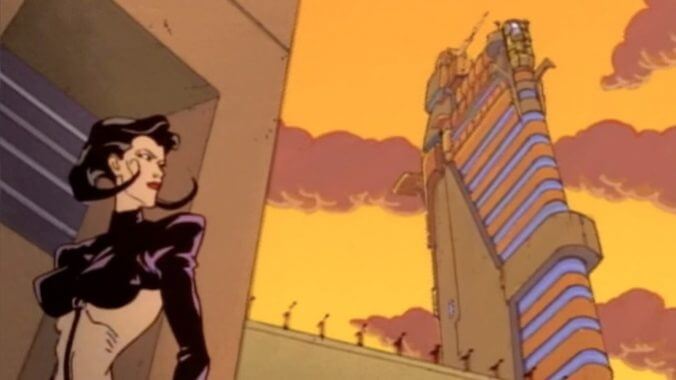One Season Wonders: MTV’s Aeon Flux Was a Dream to Awaken Our World
Photo Courtesy of MTV
In the years before streaming, extremely niche TV shows faced uphill battles against cancellation. As a result, TV history is littered with the corpses of shows struck down before their time. In One Season Wonders, Ken Lowe revisits one of the unique, promising scripted shows struck down before they had a chance to shine.

There is an episode of Aeon Flux, the trippy sci-fi action cartoon that aired on MTV’s Liquid Television, that begins with a group of kids play-acting a fight. They throw fake punches at one another while one boy laughs and claps his hands to supply the sound effects. Mere feet away is a national border so militarized that even throwing something toward the other side causes automated guns to riddle the object with bullets. The two countries are so close that you can have an apartment on one side of the border and gaze through the window at your neighbor on the other side of it.
-

-

-

-

-

-

-

-

-

-

-

-

-

-

-

-

-

-

-

-

-

-

-

-

-

-

-

-

-

-

-

-

-

-

-

-

-

-

-

-









































